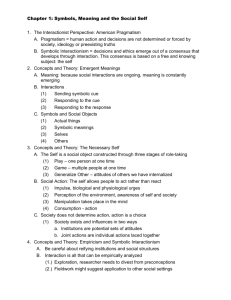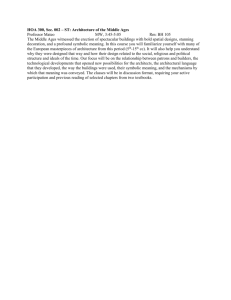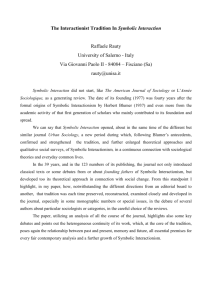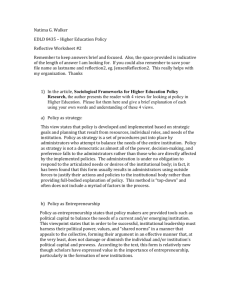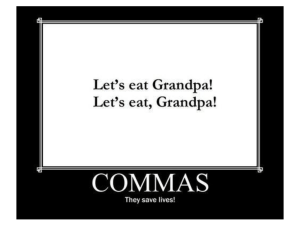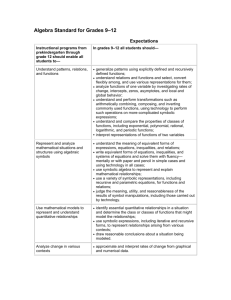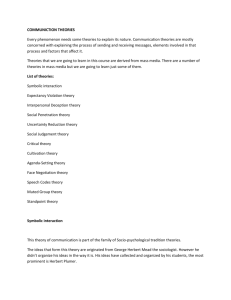Chemical Reactions Unit Test 1
advertisement
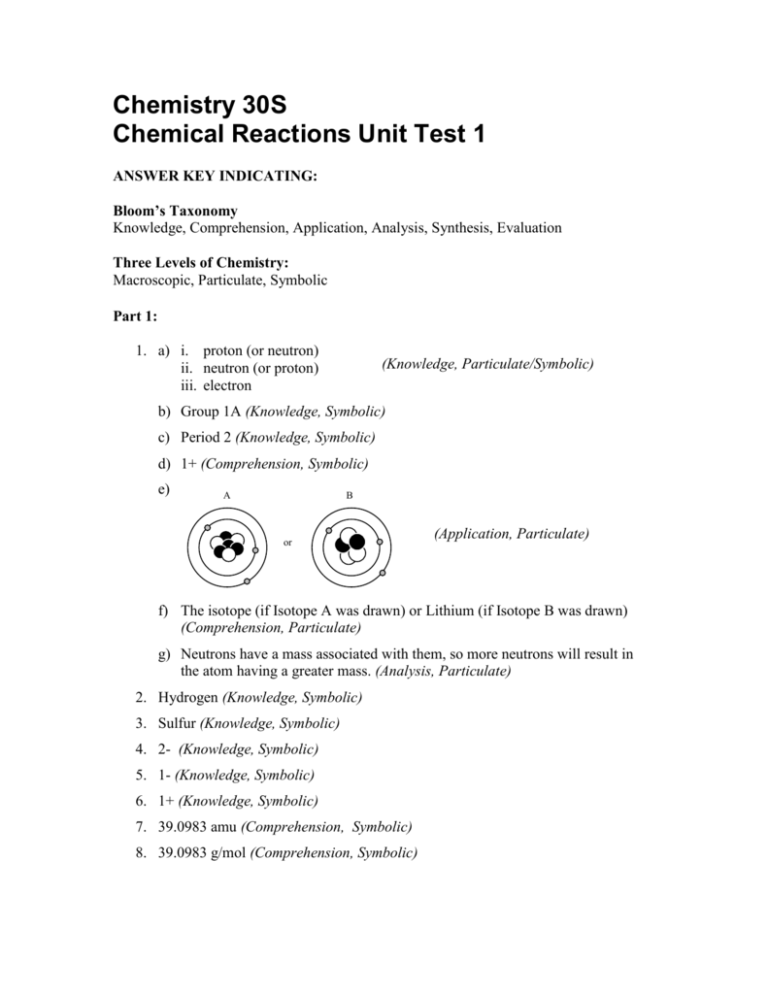
Chemistry 30S Chemical Reactions Unit Test 1 ANSWER KEY INDICATING: Bloom’s Taxonomy Knowledge, Comprehension, Application, Analysis, Synthesis, Evaluation Three Levels of Chemistry: Macroscopic, Particulate, Symbolic Part 1: 1. a) i. proton (or neutron) ii. neutron (or proton) iii. electron (Knowledge, Particulate/Symbolic) b) Group 1A (Knowledge, Symbolic) c) Period 2 (Knowledge, Symbolic) d) 1+ (Comprehension, Symbolic) e) A B or (Application, Particulate) f) The isotope (if Isotope A was drawn) or Lithium (if Isotope B was drawn) (Comprehension, Particulate) g) Neutrons have a mass associated with them, so more neutrons will result in the atom having a greater mass. (Analysis, Particulate) 2. Hydrogen (Knowledge, Symbolic) 3. Sulfur (Knowledge, Symbolic) 4. 2- (Knowledge, Symbolic) 5. 1- (Knowledge, Symbolic) 6. 1+ (Knowledge, Symbolic) 7. 39.0983 amu (Comprehension, Symbolic) 8. 39.0983 g/mol (Comprehension, Symbolic) 9. a) b) c) d) e) f) g) Formula K2S CuCO3 LiBr BaF2 (NH4)2O FePO4 CoS Name Potassium Sulfide Copper(II) Carbonate Lithium Bromide Barium Fluoride Ammonium Oxide Iron(III) Phosphate Cobalt(II) Sulfide (Application, Symbolic) Part 2: Long Answer 1. 107 Ag 109 Ag % (as decimal) 0.5184 0.4816 Mass x x 106.90509 108.90476 Relative mass portion in 1 atom = 55.4196 = 52.4485 (Application, Symbolic) The Average Atomic Mass of Ag, rounded to four decimals places, is: 55.4196 + 52.4485 = 107.8681 amu. This is 0.0001 amu less than the periodic table value which is 107.8682 amu. 2. a) Synthesis (Knowledge, Symbolic) + b) K + I K I (Analysis, Particulate) c) Potassium donates its electron to Iodine and is left with a 1+ charge because it lost one electron. Since Iodine gained one negatively charged electron it now has a 1- charge. (Analysis, Particulate) d) The atomic mass of a compound is the sum of the atomic masses of all atoms in the compound: 39.0983 amu (K) + 126.9045 amu (I) 166.0028 amu (KI) 3. a) b) (Application, Symbolic) AgNO3 + NaCl AgCl + NaNO3 Double Displacement (Application, Symbolic) (Comprehension, Symbolic) CaCl2 Ca + Cl2 Decomposition (Application, Symbolic) (Comprehension, Symbolic) 4. a) b) Zn + H2SO4 ZnSO4 + H2 C2H6 + O2 CO2 + H2O (Application, Symbolic) 5. The mole is a physical count of atoms or molecules, similar to a dozen of something, only with 6.02 x 1023 pieces. 6.02 x 1023 atoms, 6.02 x 1023 diatomic molecules, 6.02 x 1023 molecules, or 6.02 x 1023 ionic compounds is one mole of that substance. (Analysis, Particulate) 6. A + 2A A A A A2 2A denotes 2 moles of a substance (individual atoms) while A2 denotes a atoms chemically joined in a diatomic molecule. (Analysis, Particulate)
